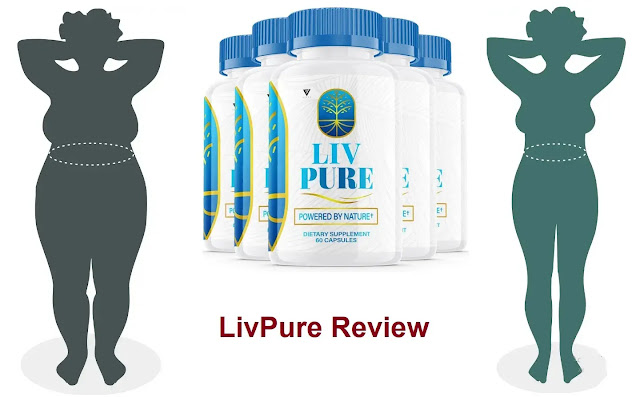In this report, I’ll give you a rundown of the important facts about vitamins and their importance to your health.
The most important thing to understand about vitamins is that most people are deficient in several of them. Yet, few doctors seem to understand or address this key issue with regard to their patients’ health. Even people who take multivitamins are often deficient in several essential vitamins.
So, before we discuss each vitamin, let’s define what vitamins are. They are substances that help your cells grow, develop, and function the way they should. Without vitamins, the cells of your body would not be able to sustain themselves.
Some vitamins are water-soluble, which means that your body can use them right away, and they leave your body when you urinate. As a result, you need to take more of these vitamins on a daily basis. Other vitamins are fat-soluble, which means that they remain stored in your body and can become toxic if you take too much of any of them.
There are 13 vitamins that your cells require in order to function normally. Each one provides your body with something different, which is why you need all of them in order to stay healthy. A deficiency in any of these vitamins for a long enough period of time will eventually result in disease.
- Vitamin A
- Vitamin B1 (Thiamine)
- Vitamin B2 (Riboflavin)
- Vitamin B3 (Niacin)
- Vitamin B5 (Pantothenic Acid)
- Vitamin B6 (Pyridoxine)
- Vitamin B8 (Biotin)
- Vitamin B12
- Vitamin C
- Vitamin D
- Vitamin E
- Vitamin K
- Pantothenic Acid
- Folic Acid
1- Vitamin A
You’ve probably heard all your life that Vitamin A is important for your eyesight. This isn’t what is sometimes called an “old wives’ tale.” It’s absolutely true! Vitamin A helps you to see well in darker lighting.
You may also have heard of beta carotene, a substance found in some vegetables, such as carrots. Beta carotene is a source of Vitamin A, and it has antioxidant properties, which means it helps to fight free radical cell damage in your body. The importance of antioxidants has become well-known in the last few years, and it cannot be taken lightly. It isn’t just a fad. Antioxidants are indeed as important as the media has stressed. When your body has more free radicals than antioxidants, it goes into what is called “oxidative stress,” and this condition leads to many of the most common diseases we see in our culture.
Besides your eyes (specifically, the retina of the eye), Vitamin A also works to keep your teeth, bones, skin, mucous membranes, muscles, ligaments, and cartilage healthy. Studies have also shown that Vitamin A can potentially prevent some forms of cancer and strengthen the immune system. A Vitamin A deficiency is most likely to lead to dry eyes, night blindness, and problems with the skin.
Vitamin A is fat-soluble and is found in orange vegetables, leafy greens, and also meats and dairy.
2- Vitamin B1 (Thiamine)
Vitamin B1 is usually referred to as Thiamine and is water-soluble. Its function is to help your body break down sugars, turning the carbohydrates you eat into energy. It also helps to keep your cardiovascular and nervous systems healthy, including your heart and brain. If you become deficient in Thiamine, you may grow tired and lose your appetite.
Thiamine can be found in fish, meats (especially pork), dairy, and some cereals and breads (especially whole grains).
3- Vitamin B2 (Riboflavin)
Vitamin B2 is more commonly called Riboflavin and needs other B vitamins in order to do its work, which includes helping us grow and repair tissues, maintain healthy skin, and produce red blood cells. A study indicates that the combination of a high-dose riboflavin supplement with magnesium taken over a 2-3-month period may reduce the incidence of migraines.
Riboflavin can be found in nuts, eggs, meats, dairy, asparagus, bananas, leafy greens, tomatoes, almonds, mushrooms, okra, chard, yeast, and persimmons.
4- Vitamin B3 (Niacin)
When Vitamin B3 is discussed, it’s generally referred to as Niacin. Like Riboflavin, Niacin works with the other B vitamins (B-complex) to help your body utilize the energy from the carbohydrates you eat. It also helps to keep your skin, digestive system, and nervous system healthy. It can reduce bad cholesterol (LDL) while raising good cholesterol (HDL) and improve blood circulation as well, preventing your risk of heart attack.
Niacin is more effective when taken with fish oil and prevents fat cells from being released from fatty acids into the liver. This is a good thing, which helps to keep both kinds of cholesterol at a healthy level.
Niacin is found in meats (especially chicken, beef, and liver), fish, cereals, legumes, and peanuts.
In doses that are too high, Niacin can cause liver damage, but overdose is very rare. Some doctors today are much too concerned about overdoses, and as a result, they inadvertently prevent their patients from reaping the benefits of this vitamin. Deficiencies can lead to digestive problems, fatigue, and nervousness.
5- Vitamin B5 (Pantothenic Acid)
This acid helps your body break down and process foods and, like Biotin (discussed later in this report), it has an effect on cholesterol and assists your endocrine system (hormones). Pantothenic acid is water-soluble and is found in many foods from eggs, beef, fish, and dairy to vegetables in the cabbage family (such as broccoli), potatoes, sweet potatoes, yeast, legumes, and some whole grains.
6- Vitamin B6 (Pyridoxine)
Vitamin B6 is usually called Pyridoxine and is found primarily in foods that contain protein, such as meats, fish, beans, and nuts. It is also found in whole grains and cereals, however.
Vitamin B6 helps your body produce red blood cells, strengthens your immune system, and assists in brain and nervous system function. This vitamin also helps to slow down the process of glycation, which is a destructive force that occurs in the body during the aging process. Cataracts and Alzheimer’s disease are among the results of glycation, for example. A unique form of Vitamin B6 called pyridoxamine seems to be an exceptional anti-glycation substance.
Like the other B vitamins, Vitamin B6 is water-soluble. If you have too little of it, you may develop sores in your mouth. Severe deficiencies lead to skin problems, confusion, and even depression in some cases, although such deficiencies are rare in the developed world.
7- Vitamin B8 (Biotin)
Biotin is an important nutrient that works similarly to Pantothenic acid, helping your body process both proteins and carbohydrates. Biotin also helps your body metabolize amino acids, it assists your endocrine system (hormones), and it has an effect on cholesterol.
It is water-soluble and can be found in broccoli and other vegetables in the cabbage family, legumes, potatoes, sweet potatoes, yeast, and some whole grains.
8- Vitamin B12
Vitamin B12, another water-soluble vitamin, also helps you create red blood cells, and it aids in the function of your nervous system and metabolism. Meats (including poultry), dairy, eggs, and shellfish contain this vitamin. For this reason, vegetarians need to take Vitamin B12 supplements to make sure they don’t experience a deficiency, although dangerous deficiencies are rare since your body can store B12 for years. Deficiencies can lead to mouth sores and anemia, however. Pregnant women require more than the average amount of this vitamin. Learn more about this vitamin in my website article.
9- Vitamin C
Sometimes, you will hear Vitamin C called “ascorbic acid.” While most people believe Vitamin C prevents a cold, the evidence for this is not very compelling, although there is some evidence that it may aid in cold prevention. Once a cold has begun, it seems to have no effect at all.
What we know Vitamin C can do is help our bodies to grow, help wounds to heal, help the body absorb the mineral iron, and keep our bodies generally healthier – especially the gums and teeth. The most compelling studies about Vitamin C have shown that it has the potential to prevent cancer in some cases. It assists in the formation of collagen, too, which is used by your body to build new skin, soft tissue, and blood vessels.
Vitamin C is also an antioxidant, and studies have indicated that if you take it with zinc and other antioxidants, it may prevent or slow macular degeneration, a condition in which the retina deteriorates and often leads to blindness.
Vitamin C is water-soluble, so large doses are usually fine, although there are different schools of thought on this subject. Studies have been done on rats, giving them megadoses of Vitamin C, and the results were mildly negative. Studies have not been done on people to determine if megadoses are a good or bad idea. One thing we know for sure is that people with kidney stones should avoid taking great amounts of the vitamin, as it might worsen their symptoms.
Vitamin C is found in citrus fruits, broccoli, green peppers, tomatoes, potatoes, sweet potatoes, and strawberries. Note that cooking foods with Vitamin C makes the vitamin inactive, so you can only reap its benefits when you eat foods raw.
10- Vitamin D
This vitamin has been in the news a great deal lately because of its relationship with the sun. Exposure to sunshine helps the body to produce Vitamin D, and as a result of the indoor lifestyle of most Americans, many are believed to be Vitamin D deficient. Fortunately, studies seem to indicate that only a small amount of sun exposure is enough to produce sufficient Vitamin D. Experts have recommended 20 minutes in the sun (without the use of sunscreen) three times a week. (Of course, be careful to avoid such direct exposure that you get sunburn, and protect your skin most of the time with sunscreen.)
Vitamin D is also necessary for the prevention of osteoporosis because it helps the body absorb calcium. This vitamin has been shown to assist in the prevention of some cancers, heart disease, rheumatoid arthritis, and multiple sclerosis.
Unlike Vitamin C, Vitamin D is fat-soluble and is stored in the body, but you still need to replenish your stores regularly. Where can you get Vitamin D other than the sun? In dairy, fish (especially oysters), and certain cereals.
11- Vitamin E
Vitamin E is another antioxidant, but supplements of the vitamin are not as effective as dietary sources. In fact, you have to be careful not to take too much Vitamin E. 400 IU or more can be quite dangerous. The amounts in most multivitamins are usually low enough to be safe, however.
That said, the vitamin has been shown to assist your immune system and protect your blood. It also helps your body to utilize Vitamin K. There is some evidence that Vitamin E has the ability to prevent cancer, heart disease, stroke, and liver disease, but these findings are not yet conclusive. Severe deficiencies can lead to sterility and loss of pregnancy. One study conducted over a 19-year period indicated that people with sufficient levels of Vitamin E lived longer than those with lower levels.
Vitamin E is fat-soluble, so it does not leave your body in your urine. In what foods can you get Vitamin E? Leafy vegetables like spinach, asparagus, olives, corn, eggs, nuts, and seeds are the most common.
12- Vitamin K
Vitamin K is a fat-soluble vitamin that plays a large role in the health of your blood, the health of your skin, and the strength of your bones. In fact, your blood would be unable to clot without Vitamin K. Recent research has shown that this vitamin assists calcium in reaching your bones and remaining there. It also prevents calcium from reaching your arteries, which helps to prevent cardiovascular disease, including heart attacks and strokes. It also has been shown to play a role in the prevention of some cancers, diabetes, and Alzheimer’s disease, and Vitamin K is an antioxidant.
Vitamin K is primarily found in leafy vegetables like spinach, soybeans, cabbage, and cauliflower. When it comes to supplementation, there are two kinds of Vitamin K – K1 and K2. K2 is absorbed by the body much more easily than K1, and it lasts longer in the body as well. K1, on the other hand, is cleansed out of the body by the liver within a matter of hours.
This is one vitamin that your body also makes to some degree – the “good” bacteria in the intestines produce it. Most people don’t have to worry about significant deficiencies, but excessive use of antibiotics can sometimes prevent the bacteria in the intestines from making enough of the vitamin.
13- Folic Acid
You’ve probably heard a great deal about folic acid, which is especially important for pregnant women. Without enough of it, birth defects may result, and it is believed that low levels of folic acid in the mother may be a cause of the disease called spina bifida.
Sometimes called folate, this acid helps the body create red blood cells by working in concert with Vitamin B12. It also works with Vitamin C to help your body metabolize proteins, and it actually assists in the production of DNA, your genetic blueprint, having a significant impact on cell division. Folic acid also plays a roll in the prevention of depression and heart disease, particularly in high doses.
Folic acid is water-soluble. Supplements have been found to reduce the symptoms of premenstrual syndrome and ulcers of the leg. Without enough folic acid, you may develop anemia, diarrhea, ulcers (of the stomach and/or the mouth), and/or gray hair. Luckily, there are no repercussions to taking too much of this acid.
It can be found in citrus fruits, whole grains, leafy vegetables (especially those that are dark green), poultry, pork, shellfish, beans, legumes, and liver.
14- Taking Vitamin Supplements
So, how much of each vitamin should you take? There are government recommendations for vitamin dosages, but the truth is that there is no “one size fits all” amount. How can the same amount be right for absolutely every adult? No two people are the same. This is why a blood work-up and full physical examination is necessary to determine what you need for your body.
I will work with you to make specific, customized recommendations as to how much of each vitamin (and other supplements) you need to take. Then, we will continue to monitor your body’s progress through annual physicals and make the necessary adjustments going forward.





.webp)



.webp)


Social Plugin